- Home
- Patrick Robinson
The Shark Mutiny Page 44
The Shark Mutiny Read online
Page 44
“He’s alleging that the seas were clear of any potential foreign warships, and the skies were clear of foreign fighter aircraft. And he’s alleging cowardice of the very worst kind against your Captain Reid. I’ve seen the preliminary, and it ain’t pretty reading. Rusty, you know, was in the submarine at the time.”
“I think that may be rather helpful,” said Admiral Curran. “Even Captain Reid may not relish the idea of appearing at a court-martial and having to listen to two counts of cowardice against him, by two different officers, from two different but connected areas of operations.”
“The problem there is Commander Reid’s degree of wackiness,” replied Admiral Greening. “Let’s face it—not to go beyond this room at this moment—he must be a wacko. You don’t get guys like this hitherto outstanding XO Dan Headley and two proven SEAL combat Commanders, Hunter and Bennett, all thinking he’s a complete jerk, along with a lot of other senior submarine officers, unless there’s something the matter with him.
“And it’s been my experience that the more of a wacko a guy is, the more he’s likely to adopt a firm, unyielding defensive position. If he were normal, he might say, ‘Okay, I’ll back down, you guys save my career, I’ll go for a little psychological help and I’ll leave the Navy with honor, and a full pension. No courts-martial, no trouble.’
“Unhappily, that is not the way of the greater-crested common wacko. He is apt to see the world from a very narrow perspective. His own. The psychologists call it Loss of Insight. It means that you can no longer grasp the views of anyone else.
“How many major murderers appear sorry? Full of regret? Very few. They try to justify their actions. Remember Son of Sam, in New York. Wasn’t his fault, was it? There was a voice telling him to get out there and start killing. And what about that fucking dingbat they had in England, the Yorkshire Ripper who murdered all those women? He was just cleaning up the streets, right? He wasn’t sorry, despite battering innocent women, students, to death. He went to jail mystified that society had turned against him. Pleaded not guilty, I think.
“Plainly, I’m not saying Commander Reid is a criminal. But I’d bet he’s a wacko. And wackos never make life easy. They defend. To the death.”
Tuesday evening. June 26.
San Diego Navy Base.
The journey back from the Indian Ocean had been fraught with tension. Shark’s original CO being confined to his cabin was a constant reminder to the entire crew that they were steaming back into big trouble. In the beginning, a lot of the younger crew, anxious to see wives and girlfriends, wished to hell that Commander Reid could be reinstated in order to free them up to go home as soon as they docked.
They anticipated a very formal welcome, which might even see certain popular and trusted members of the crew placed under arrest. Everyone knew they had been to some degree a party to a mutiny. However, the presence of the wounded SEALs on board was a vivid reminder of the supreme heroism of the Shark’s XO and his fellow officers.
Everyone was in awe of Commander Hunter and “his guys,” and rumors of their success and bravery swept through the submarine. The four body bags stored in the torpedo room were also a chilling reminder of the SEALs’ desperate battle for the Chinese base, and by the time the submarine approached California’s coastal waters, opinion was hardening. Opinion that they, the Sharks, were a part of this great and selfless campaign, and more and more of them began to stand four-square behind the Exec who had saved the Special Forces.
It was 2030 when USS Shark came in sight of the coast. She was making 20 knots through a warm evening, on a calm surface, which rose with the long Pacific swells but offered no discernible chop. On the bridge stood Lt. Commander Dan Headley, the Navigation Officer, Lt. Shawn Pearson, and the Officer of the Deck, Lt. Matt Singer. Directly below them in the control room, Lt. Commander Jack Cressend had the ship, with Master Chief Drew Fisher at the conn.
They rounded Point Loma, heading up into the narrow channel that leads both to the U.S. Naval stronghold of San Diego and to the headquarters of SPECWARCOM. Above them, to their port side, on the heights, was the Fort Rosecrans National Cemetery, where Buster Townsend and Bobby Allensworth would both be laid to rest this week. The bodies of Catfish Jones and his colleague were being flown to their home states.
Shark slowed as she reached the narrows. She stood fair up the channel leaving the North Island Naval Air Station to starboard. Then she made her hard right turn toward the towering stilts of the Coronado Bridge, and into the sheltered waters of San Diego Bay.
Lieutenant Commander Headley brought her alongside at 2120, and the mooring lines were attached. On the dock stood the resolute figure of Commander Rusty Bennett, in company with Admiral Bergstrom. The Pacific submarine boss, Admiral Freddie Curran, was also there. And there were eight Naval guards on duty, along with a throng of wives, girlfriends and colleagues from the base.
As Shark was made fast and the men began to file out onto the deck, there was a spontaneous burst of cheering from the crowd. The figure of Lt. Commander Dan Headley stood motionless, unsmiling, on the bridge, watching the scene below as families looked forward to being reunited after months and months apart.
It did not seem that much different from any other submarine homecoming in San Diego. But it was different. No ship had ever returned here after a mutiny on the high seas. And there were certain protocols that had to be observed. Plainly Commander Reid would be escorted immediately to the offices of the Submarine Fleet HQ in San Diego, and, probably separately, Lt. Commander Headley would also be required to attend a debriefing.
Admiral Curran had made it quite clear that no one was to be arrested. There was not to be a semblance of authoritarian action, just a formal welcome, and a routine conference among senior officers. The less anyone knew about the events in the Bay of Bengal, the better. Meanwhile, the two conflicting signals sent from a distant ocean by Shark’s Captain and XO were not much short of nuclear meltdown in Admiral Greening’s private filing system.
Commander Reid was the first officer to leave the ship, and he was greeted by Admiral Curran. The two men left immediately in a staff car for the central office complex. Thirty minutes later, Lt. Commander Headley, in company with the limping Commander Rick Hunter, crossed from the submarine to the shore, where Commander Rusty Bennett and Admiral Bergstrom awaited them. They shook hands and separated, the two SEALs boarding a staff car with the Admiral, Dan Headley boarding another car alone with a staff driver.
Curiously, there was little for the XO to say. His defense of his actions would be unwavering, scarcely varying from the short signal he had already sent. The problem was Commander Reid. Could he be persuaded to agree he was not in a proper frame of mind to conduct the SEAL rescue and that he had willingly handed over command of the ship to his number two?
Within a half hour, the answer to that was obvious. No. And with Admirals Greening and Curran, Shark’s former CO boarded a military jet for Washington at first light on Monday morning, June 27.
They arrived at the Pentagon from Andrews Air Base at 1500, and were escorted immediately to the office of the CNO, Admiral Alan Dixon. And there, for the next four hours, the head of the United States Navy, the head of the Pacific Fleet, and the head of the Pacific Submarine Fleet attempted to persuade Commander Donald Reid that there was nothing to be gained from the court-martial of his XO, save the worst publicity the Navy would ever suffer.
The Commander did not agree. He felt there was something else to be gained: the salvaging of his own personal reputation. And he was damned if he was going to condone in any way the actions of a group of mutineers who had seized his ship and contravened his perfectly reasonable orders not to put a nuclear submarine in the path of anti-submarine-warfare Chinese helicopters with long-range capacity.
Nothing that any of the Admirals said made even the slightest impression on him. Commander Reid knew his rights, he knew the regulations of the United States Navy and he was going to play those rights by th
e book, the way he had always conducted his career.
“I intend, CNO,” he said, “to stand before the Navy Board of Inquiry and to tell the absolute truth about the events that took place in the Bay of Bengal. And I shall demand the court-martial of the ringleader of the mutineers. With respect, sir, you must know I am entitled to that.”
“You may be so entitled,” said Admiral Dixon wearily, “but we are asking you to reconsider, in the interests of the greater good of the United States Navy, and its image before the public.”
“Then your request, with the greatest respect, is declined,” he replied firmly. And then Commander Reid shook his head and spoke almost in a mutter, as if speaking only to himself: “This is not my fault, not my fault at all…I told him over and over the planet was in retrograde…. If he had just had the sense to listen to me…”
“I’m sorry, Commander,” said the CNO. “I didn’t quite catch that.”
“Oh, nothing, sir. Nothing at all. I was just thinking and wishing things could be different. But I’m afraid they cannot.”
All three of the Admirals realized there was no point in pursuing this. Reid’s mind was made up. And nobody was going to change it for him.
Commander Reid had no grasp whatsoever of the evidence that would be given on behalf of Lt. Commander Headley, and he had no interest in it. He knew only one thing: He had wished to play it safe, to keep his submarine out of harm’s way, and he had been thwarted by the reckless actions of some damned two-and-a-half, who had never commanded a warship in his life.
On the flight back to San Diego, Donald Reid sat separately and silently, all the way, several seats behind the two Admirals. In contrast, they had much to talk about, because they were both struggling to find a way out of this particular mess. But there was no way out. Not unless Reid reconsidered his position.
And judging by his demeanor in the office of the CNO, Shark’s former CO had a very private agenda of his own, an agenda that would not easily be intruded upon.
“He’s a strange kind of a guy, don’t you think?” said Admiral Curran, quietly. “He has that confidence some people have. As if they could never be wrong. By the way, what did you make of that last stuff he was muttering? I couldn’t really hear it.”
“No. I couldn’t either,” replied Dick Greening. “But I seemed to catch the word retrograde. Tell the truth, I’m not really sure what the word means.”
“It means going backwards, doesn’t it?”
“Beats the hell outta me. But if it does mean that, he must have been referring to our conversation. That sure as hell was going backwards.”
Eight days later.
0900. Wednesday, July 4.
San Diego Naval Base.
America’s national summer holiday was still in beach-bound progress on this bright sunlit California morning. The temperature was a near-perfect 78 degrees, and a light southwester off the Pacific promised to keep the sun worshipers relatively cool before the fireworks in the evening.
In the shaded gloom of the big office he always used in San Diego, Admiral Dick Greening felt almost sick with worry. He had before him a memorandum, signed by Captain Stewart Goodwin, who was presiding over the Board of Inquiry.
It read: “After three days hearing evidence in the USS Shark case, it is clear there was indeed a mutiny on board the submarine while on patrol in the Bay of Bengal. The facts are not in dispute. There was great sympathy for Lt. Commander Headley, whose actions were courageous in the extreme. However, Commander Reid is demanding the court-martial of his Executive Officer for making a mutiny on the high seas. And Naval regulations permit a Commanding Officer to make such a demand.
“With reluctance I, and my fellow members of the board, believe there is a prima facie case for a court-martial, and we are sending our findings to the Trial Service Office. The Judge Advocate General will then decide whether Lt. Commander Headley should indeed stand trial.”
Admiral Greening stood up and walked across the office to a wide computer screen on the wall, and he punched up the numbers 16.00N 94.01E. And there before him was the exact stretch of ocean where this terrible drama had been played out. He could see the island of Haing Gyi, the swamp, the little creek running through it. He could see the Haing Gyi Shoal marked clearly, the shallow water across which the fleeing SEALs had raced in their fast but tiny outboards. He could see the low marshy headland of Mawdin Point, and in his mind he pictured the scene.
The Chinese helicopters mercilessly machine-gunning the Americans as they tried to get away. Catfish Jones dead, Bobby Allensworth dead, Buster Townsend badly wounded, Rick Hunter pouring blood, still firing, all of them helpless sitting targets in the open boats. He imagined the terror. Imagined the courage. And then he imagined the sudden appearance of the Shark, lambasting the choppers with their Stingers, saving the eight survivors of this awesome SEAL mission.
And now they want me to approve the court-martial of the man who commanded the submarine?
“Jesus Christ,” said the Pacific Fleet Commander. And it was as well there was no one in the room to see him so upset, as he stared at the screen, hearing again in his mind the staccato rattle of the murderous Chinese guns.
1500 (local). Same day.
Office of the National Security Adviser.
The White House. Washington, D.C.
Admiral Morgan was displeased in the extreme. “Alan,” he said, “there’s gotta be some way we can stop this. You want me to get the President to intervene?”
“I don’t know,” replied Admiral Dixon. “The trouble with the damned Navy is that certain things are just like presidential elections—ain’t nothing anyone can do to stop ’em. They just happen.”
“Tell me about it. How about a presidential pardon for Lieutenant Commander Headley? The man in the Oval Office, as Commander-in-Chief, has to be able to do at least that.”
“Well, I guess he could. Somehow. But that’s not really the issue, is it, Arnie, old buddy? The press will want to know if the Navy has gone off its trolley, court-martialing such a man as Dan Headley. As you pointed out, it’s the very act of court-martial that is going to bring this whole thing right out into the open, where we don’t want it to be.”
“Who’s the Judge Advocate General in this case?”
“Veteran surface-ship commander, former lawyer, Sam Scott from Oregon. About as rigid a man as you could find. He’ll play this case right by the book. He’ll look at the recommendations of the board, check his goddamned law books and then decide that Lieutenant Commander Headley should stand trial as charged.”
“Could we reason with him?”
“No chance. He’ll just ask, What happens if the CO resigns and goes public, in a book, which will inevitably detail what he thinks is a cover-up.”
“Well, I guess it would be.”
“Sure would.”
“Well, what can we do?”
“We can put in a massive effort to help Dan Headley beat the rap.”
“But that’ll mean we have to prove Reid is insane.”
“Correct. And then the media will jump all over us for putting in charge of submarines men who ought rightly to be in an institution for the seriously nerve-wracked.”
“Damned if we do. Damned if we don’t.”
“This case was always thus, Arnie. Either we talked Reid into a complete capitulation, which we couldn’t, or we were going to find ourselves in the deepest possible shit. Where we now are.”
“Yeah. But it’s not quite over.”
“Enlighten me, NSA.”
“We owe it to this Lieutenant Commander Headley to help him prove his boss was both nuts and a fucking coward. And the press can go fuck ’emselves.”
“Yessir.”
0900. Wednesday, July 18.
Office of CINCPACFLT.
Pearl Harbor.
The Judge Advocate General’s decision took two more weeks to arrive. And now it lay smoldering on the sunlit desk of Admiral Dick Greening, just as it l
ay smoldering on the desk of Admiral Alan Dixon in faraway Washington, D.C.:
After careful consideration of the evidence and observations of the Naval Board of Inquiry which examined the events on board USS Shark in the Bay of Bengal, I have decided there is a prima facie case for the court-martial of the Executive Officer, Lt. Commander D. Headley. He will thus stand trial for Making a Mutiny on the High Seas on the morning of June 7, 2007, on which date he did relieve his commanding officer, Commander D. K. Reid, of his duties, under Section 1088 of Navy Regulations.
On the basis of the depositions before me, I have recommended that Commander Reid undergo psychological examination by three doctors, including but not limited to one civilian practitioner.
My findings have been referred to the Trial Service Office, for selection of trial counsel and defense counsel. I have recommended a senior judge advocate shall attend the proceedings, which will be heard in the trial Service Courtroom at the San Diego Navy Base on a date to be arranged. Signed: Captain Sam Scott, Judge Advocate General.
It was not unexpected, but the reality of the situation suddenly loomed before the Pacific Fleet Commander. This was it, the court-martial of a U.S. Navy hero, whose actions were witnessed not only by a crew of 107 completely supportive, very talkative seamen on board a fighting nuclear submarine, but also by eight highly regarded members of the U.S. Navy’s Special Forces, all of whom owed their lives to the actions of Lt. Commander Headley.
Their story was already well on its way around the SEAL bastions of neighboring Coronado and Little Creek in Virginia. Offhand it was difficult for Admiral Greening to think of any member of the service who would not know at least a vague version of this melodrama by nightfall.
As Commander of the Pacific Fleet, he was required to “sign off” on the court-martial, as indeed was the CNO in the Pentagon. And Dick Greening was going to hate doing that. But he had no choice.

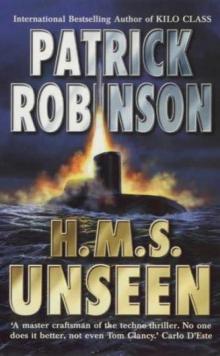 H.M.S. Unseen am-3
H.M.S. Unseen am-3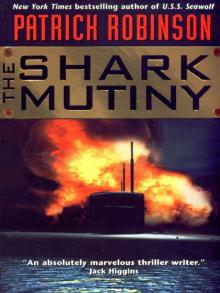 The Shark Mutiny (2001)
The Shark Mutiny (2001) Hunter Killer am-8
Hunter Killer am-8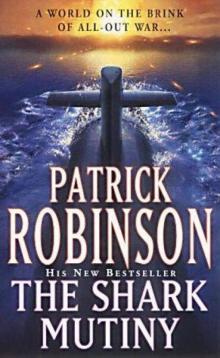 The Shark Mutiny am-5
The Shark Mutiny am-5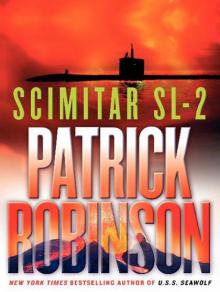 Scimitar SL-2
Scimitar SL-2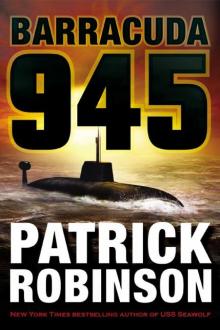 Barracuda 945 am-6
Barracuda 945 am-6 Hunter Killer
Hunter Killer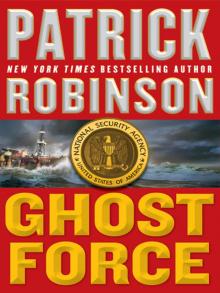 Ghost Force
Ghost Force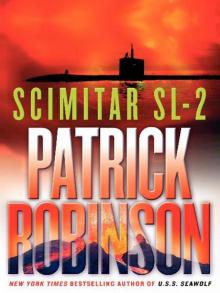 Scimitar SL-2 (2004)
Scimitar SL-2 (2004) Kilo Class am-2
Kilo Class am-2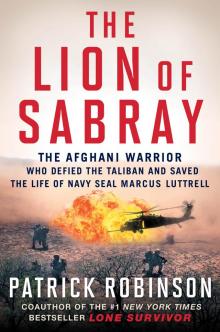 The Lion of Sabray
The Lion of Sabray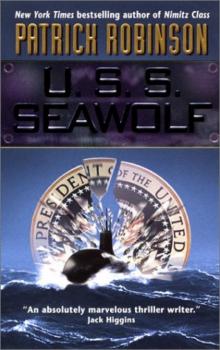 U.S.S. Seawolf am-4
U.S.S. Seawolf am-4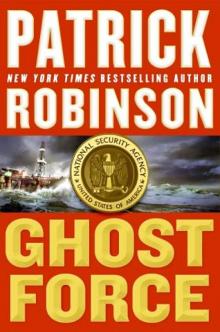 Ghost Force am-9
Ghost Force am-9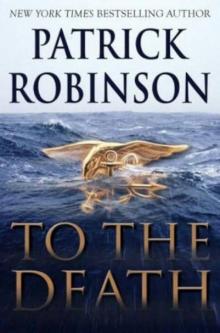 To the Death am-10
To the Death am-10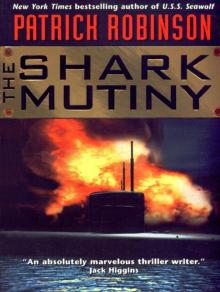 The Shark Mutiny
The Shark Mutiny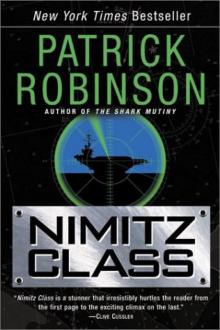 Nimitz Class am-1
Nimitz Class am-1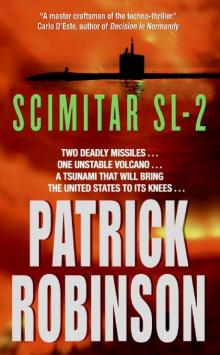 Scimitar SL-2 am-7
Scimitar SL-2 am-7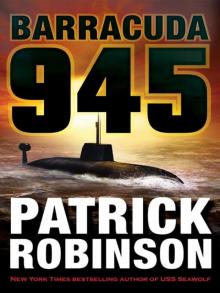 Barracuda 945
Barracuda 945 Intercept
Intercept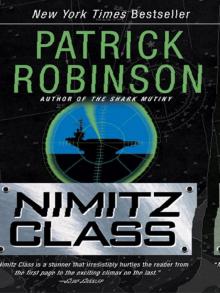 Nimitz Class (1997)
Nimitz Class (1997)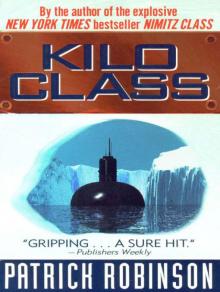 Kilo Class
Kilo Class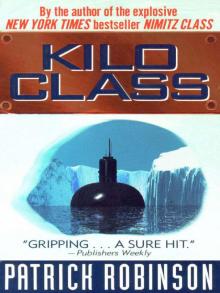 Kilo Class (1998)
Kilo Class (1998) Diamondhead
Diamondhead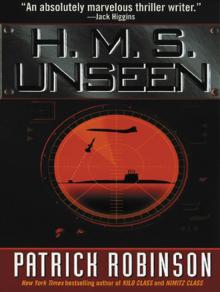 H.M.S. Unseen
H.M.S. Unseen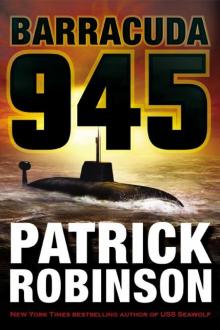 Barracuda 945 (2003)
Barracuda 945 (2003)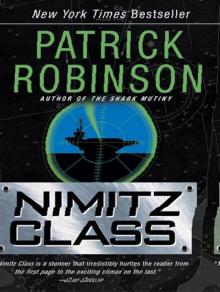 Nimitz Class
Nimitz Class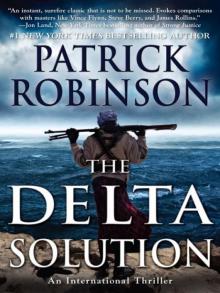 The Delta Solution
The Delta Solution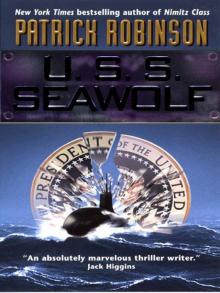 U.S.S. Seawolf
U.S.S. Seawolf